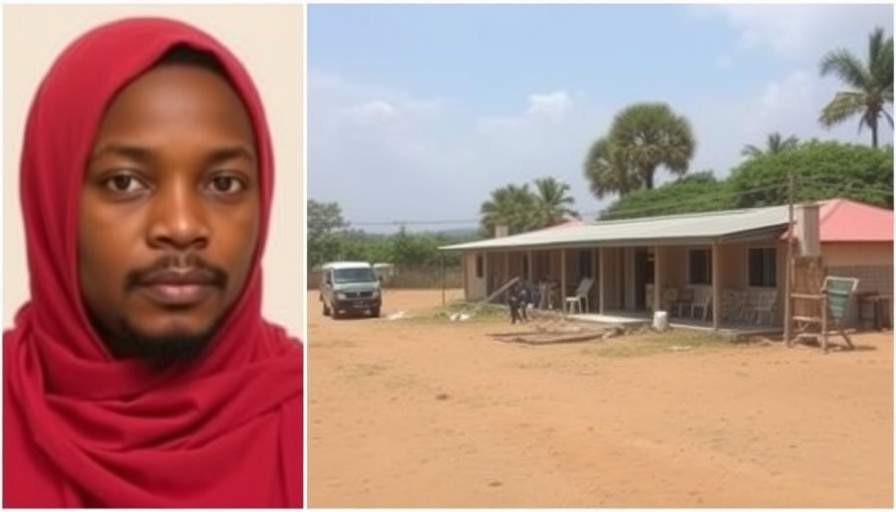
The Alarming Disappearance: Context Behind the Abduction
The recent reported abduction of Humphrey Polepole, a former Tanzanian ambassador and outspoken critic of the government, has sent shockwaves through Tanzania and beyond. This incident, occurring just weeks before the country’s general elections on October 29, signals deepening concerns about political repression and the safety of dissenting voices in the nation. Family members noted signs of a violent struggle at his residence, with bloodstains leading outside, which emphasizes the grave nature of this case.
Tensions Leading Up to the Elections
As Tanzania approaches its general elections, the political landscape is marred by accusations against President Samia Suluhu Hassan's administration for stifling opposition. Since her ascent to presidency post-John Magufuli's death, Hassan initially garnered some approval for her more lenient approach toward political discourse; however, this impression has eroded in light of recent crackdowns on political opponents. Observers note that several political figures, including Lissu, the opposition leader currently facing treason charges, have become victims of intimidation tactics, including abduction.
The Broader Implications of Political Abductions
Polepole's disappearance is not an isolated event. Reports indicate a disturbing trend of enforced disappearances targeting critics and opposition leaders, raising alarms among human rights organizations and political analysts. Many speculate that these actions are part of a wider strategy to suppress dissent and keep the political climate under control as the country prepares for potentially transformative elections. Such incidents could have far-reaching consequences for Tanzania's international relations and economic partnerships, particularly as foreign investors become wary of political stability and governance integrity in the region.
A Call for International Attention
The international community must take heed of the alarming situation unfolding in Tanzania. As conversations around governance and human rights intensify globally, maintaining a spotlight on Tanzania's political climate is crucial. Investors and policymakers alike should gauge the implications of such human rights violations on economic partnerships, as fears of instability rise. Proactive diplomatic engagement may be essential to fostering a future in which civic freedom and political dialogue thrive within Tanzania.
 Add Row
Add Row  Add
Add 


Write A Comment